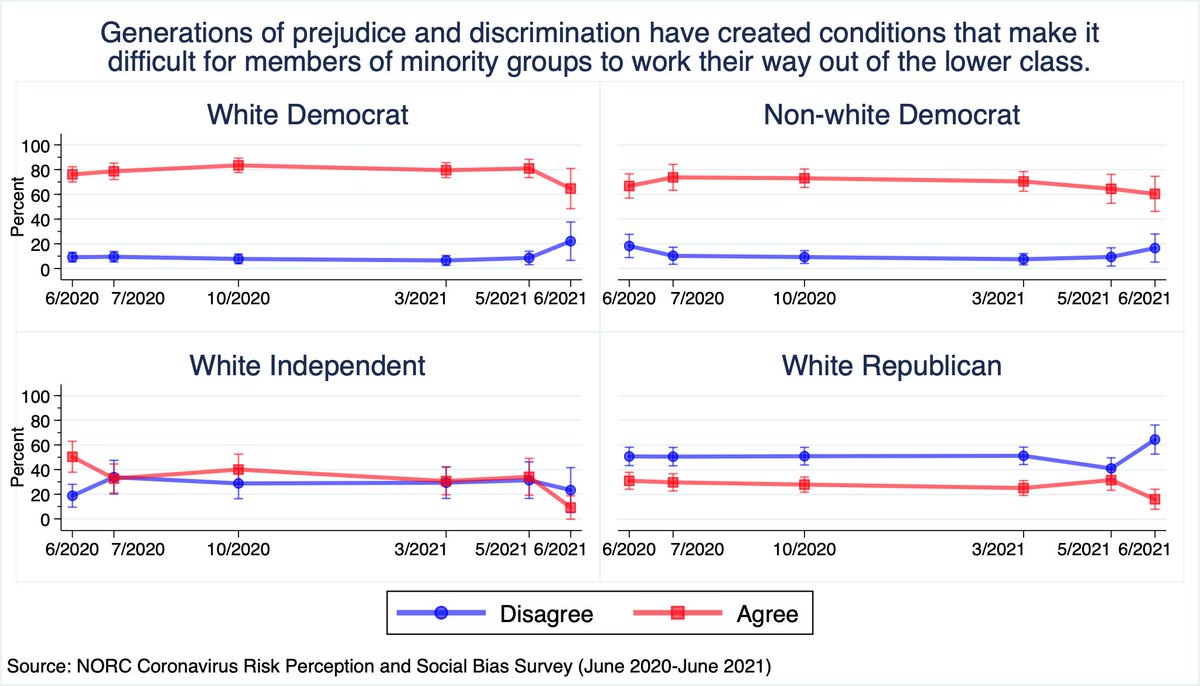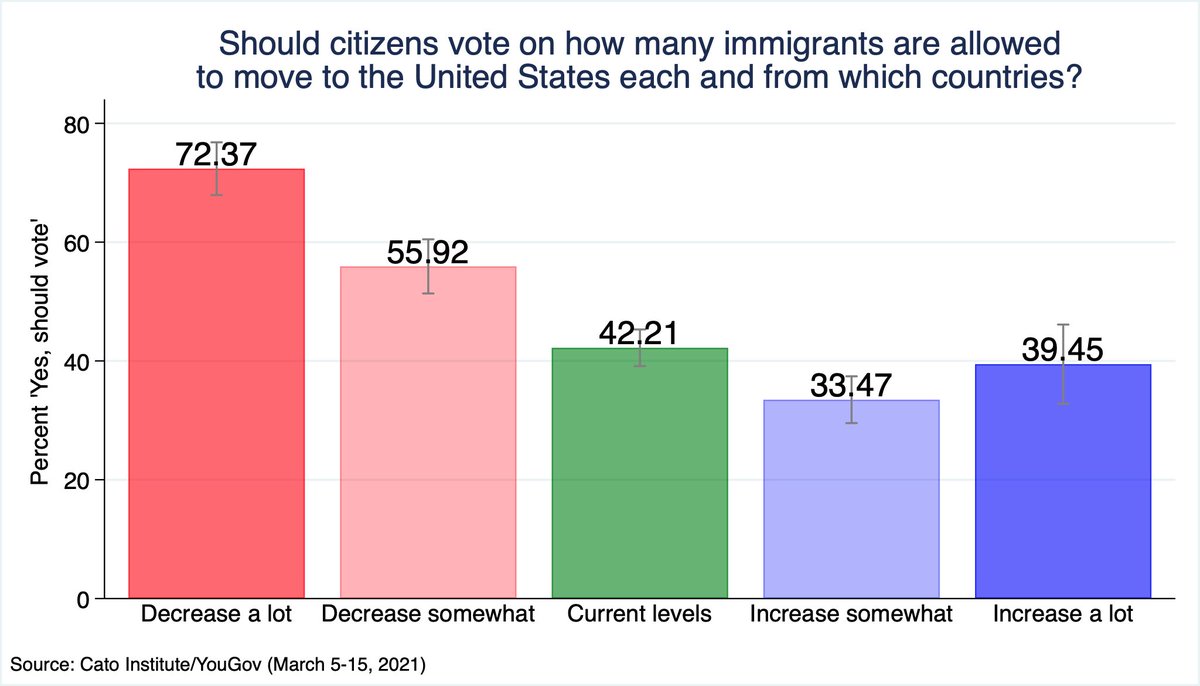
1/n To update an older thread 
https://twitter.com/ZachG932/status/1108535401055219712?s=20, after decades of relative stability, tolerance for racist speech continues to plummet, particularly among white liberals. Tolerance among white conservatives, meanwhile, has remained relatively stable.

4/n This caveat still applies, but it doesn't *appear* to have impacted these trends (e.g. intolerance was already increasing among white liberals < 2020, little to no change among white cons.)
6/n My own normative take: if you genuinely support freedom of speech, you should tolerate racist speech. (unless you're prepared for others to make 'exceptions' that you may not like)
7/n Tweet #4 is missing a link to the caveat I was referring to
https://twitter.com/ZachG932/status/1455758293335482372?s=20
• • •
Missing some Tweet in this thread? You can try to
force a refresh















